Starting from the "lemon problem", we will discuss the self-regulatory method of realizing the Web3 ecosystem by zero-knowledge proof.

Reprinted from panewslab
02/12/2025·2MCompiled by: Loxia
Lemon problem and trust crisis
Today I don’t intend to talk too much about technology, what I want to discuss is a social problem we face in the field of crypto. The title of this speech is "Social Consensus and Self-Supervision". I would like to ask you first, has anyone heard of the "lemon problem"? Does this word have an impression?
OK, not very impressive, not very.
Well, the American slang term "lemon" refers to an unreliable car, and a car you didn't know in advance that it would be unreliable. I'm not sure about the origin of the word, but "lemon" means that.
Well, a good and reliable car is called "peach". I didn't know about this before, I only found it after checking it. It's quite cute.
The "lemon problem" is basically a problem with used car dealers. When you go to the used car market, it looks a bit like this, and it feels a bit deceptive because you don’t know if the car you buy will be "peach" or "lemon". This is also a big problem in the crypto field today - everything may seem like a "peach", but in fact many protocols are "lemon".
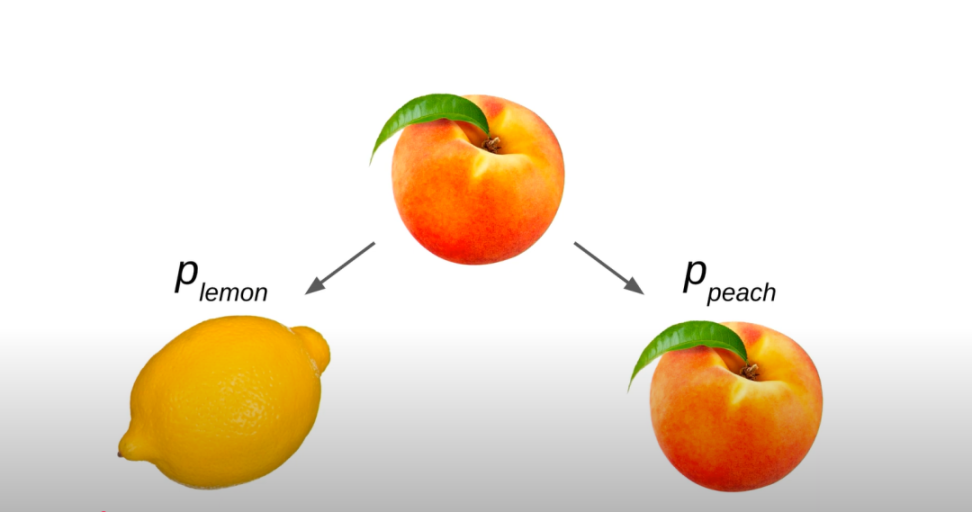
So, when you buy a car or use an agreement, there is a certain probability that it is a "peach" and a certain probability that it is a "lemon". So what is the price you are willing to pay for this? What is the expected weighted average price you are willing to pay for something that might be a "peach" or a "lemon"?
What is the price you are willing to pay for this? This is like some weighted average, we can all internalize this concept - there is a certain "lemon" probability multiplied by the value of "lemon", plus the "peach" probability multiplied by the value of "peach".

You might intuitively think that the price you are willing to pay is between the price you are willing to pay when you know it is a "peach" and the price you are willing to pay when you know it is a "lemon". So why is this a weird dynamic, why are we talking about fruit?
So, what incentive effect does this have on used car dealers? If you know everyone will pay a price between "peach" and "lemon", what is your incentive?

Your motivation should be to only sell "lemons", right? If people are willing to pay a higher price than "lemon", you have no reason to sell "peaches", you can sell "lemon" to them directly.
This is often called a scam.
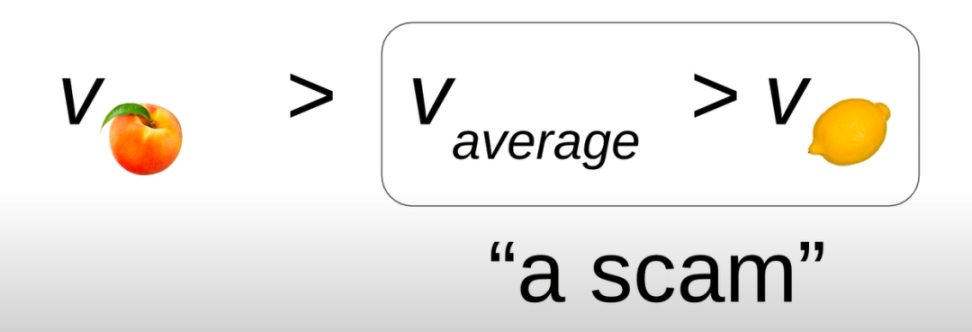
Well, I want to pause for a moment, this is a big problem facing the crypto field today - the lemon problem.
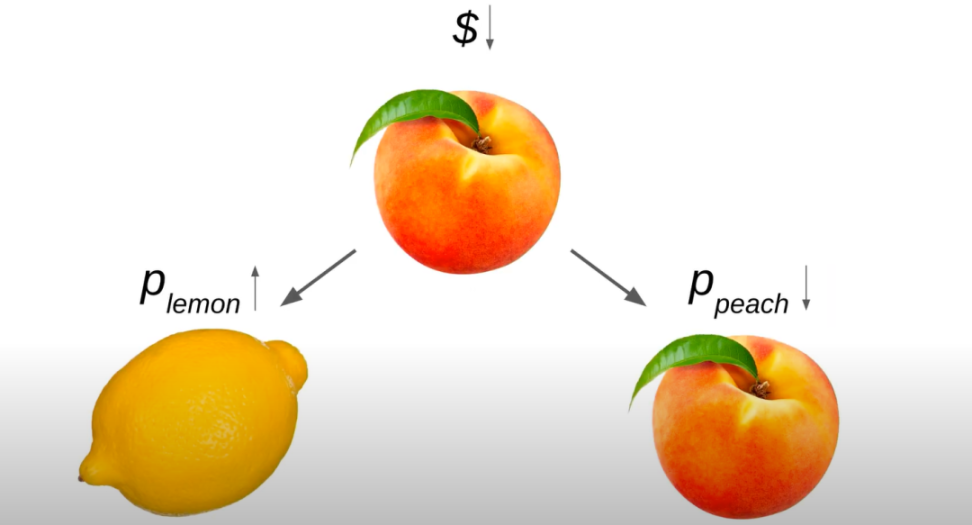
Well, today's cryptocurrency trend is that due to this lemon problem, the probability of "peaches" has actually decreased, and fewer and fewer people are willing to grow "peaches" because "peaches" are expensive, and "lemon" dealers are pouring in Enter the market because they feel like wow, I can sell the "lemon" directly to people who are willing to pay a higher price for my product than it actually is because they are misled as "peach". Overall, the user’s willingness to participate in the ecosystem has declined, which is reasonable.
Now I can hear some of you in my head, or the interlocutor you imagine, say, “This is the price of permissionlessness, we have to accept mixed, like the 30% discount in the crypto space, you know This is reality.”
But this is not a one-time cost, the lemon problem is not a one-time cost, it is actually a death spiral.
Because when our trust decreases, it is harder for "peaches" to beat "lemon". "peaches" exit the market, and we only have "lemons", which is not a good place.
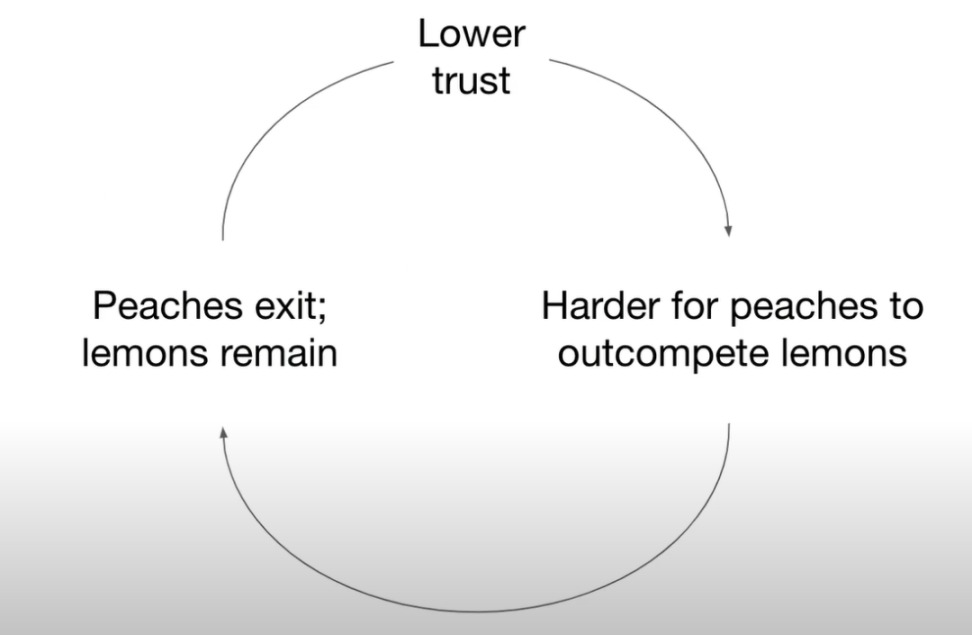
So we need to help consumers identify "lemons" in some way, and I want to say that if we don't, Gary will -- in fact he's already working hard -- so that's why I push, if we want to keep us In the spirit of developing the crypto field and solving the lemon problem, we need some form of self-regulation.
Let's compare this with something that's done well, which can be controversial.
Casino Model: Building a Security and Fair Trust Mechanism
OK, what am I talking about?
So I mean the encryption field is just a casino?
No, I mean the crypto space is not even as good as the casino,

We need to do at least as good as the casino. If cryptocurrency can work,
We need to do at least what the casino does well.
I think it's worth a look, and this is what I'm going to talk about next.

Casinos are known for their fairness and safety, and they promote this vigorously. Why do they do this? They spared no effort to prove that the casino was not manipulated, except for the way it was obviously manipulated.
Let me give you a few examples, this is an automatic card counting machine.
Well, why do they do this? Why did they use this instead of having the dealer dealer dealer manually?
They want to prove to you that you are not deceived, of course except for the way you are structurally deceived, but they want to prove to you that this is verifiable randomness.
They prohibit cheaters and share cheaters information with other casinos. Why are they willing to unite against cheaters? If I were Flamingo Casino (a casino in Las Vegas), I found a cheater, why would I share this information with the winner?
They have these dice calipers to ensure the dice is evenly weighted, all to convince the consumer that you are not being cheated, you are playing fairly, and even though the odds of winning are against you, you are not cheated or cheated.

The government and the casino actually invest together in making the casino safe. We forget that casinos are very legal and fast-growing, you know Ethereum is expected to achieve $2 billion in fee revenue this year, while the global casino industry will achieve $300 billion in revenue.
Marketing security is a way for casinos to work very successfully with the government, and it is good for everyone to convince them to make this thing safe.
OK, how does this work? This is a virtuous cycle, higher trust equals more users equals investment and fairness and security,

So we need to do this in a decentralized way. We know the fact that the three letters I haven't heard in any conversation this week - FTX, no one talks about it, we like to pretend it's just a nightmare, you know, the bad guys really erode the trust of the entire ecosystem, Not just the people they target, but everyone.
Zero-knowledge proof-driven self-regulation and social consensus
But we have the technology to prove security and legitimacy, we just need to adopt it at the social level, so the necessary wave this week – zero knowledge, right? This is a word we all know.
We have the ability to prove integrity, identity, reputation and calculation integrity.
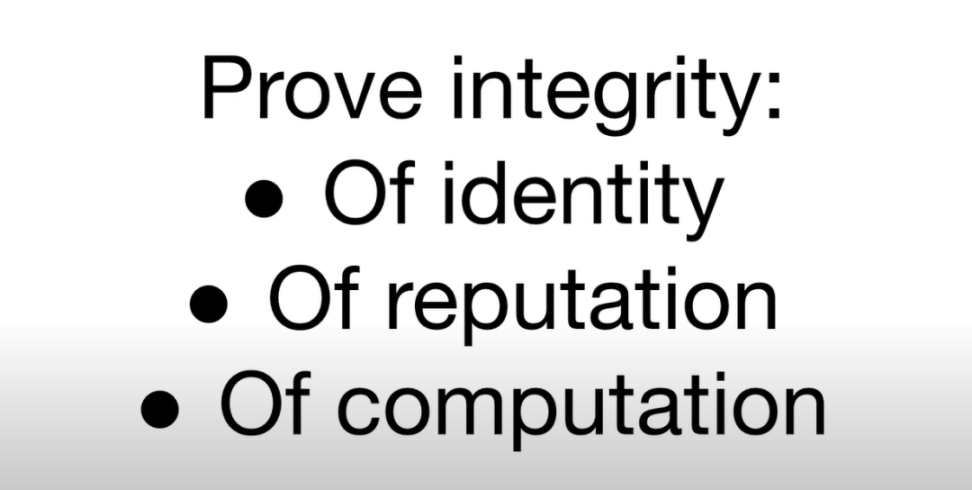
The problem is not technology, we keep attending these meetings and talking about technology, and part of the problem is actually social consensus and ideology.
We know that we have the ability to create new forms of social consensus around protecting applications and users, and we need to accept that this is something we have to do, we need to self-regulate before we can be regulated by others.
So I think we are very extreme ideologically, either completely unlicensed or fully permitted, either black or white, either this or that.
But in fact, there is a very broad spectrum of social consensus among them.
Let me give you an example of what ZK and ASIC will eventually study to unlock—it's a curse of ideology, you know that only third-party identification token holders can enter a pool . This can be both permissionless and licensed. I can build a pool with these rules, you can choose whether to enter, so we have this concept of free will paternalism.
Someone, somewhere, like the social consensus in this room, will decide that this is how we operate safely, and then the user decides what they want to do, not that we are completely black and white, if there is any permission, even social , even democratic, we cannot allow it.
Another example is the concept of a decentralized cleaning provider that Vitalik and our co-founder Zach Williamson have been working on, a social graph where individuals prove the legitimacy of your funds and transactions, they observe behavior and say This is not something we want to relate to. This is very different from centralization, very different from censorship, a democratic form of social consensus that we all say we will not tolerate certain behaviors in our ecosystem.
The goal here is to still allow users to express their preferences in various protocol designs, not to limit freedom, but to give users more choices than I said now.
Therefore, ZK implements this permissionlessness at the basic level, and provides a social consensus on permission at the application level.
These are more examples, you know there are a lot of discussions about reserve proofs, anti-fishing, opt-in compliance pools, legal funding proofs.
But it's all about saying that we need to turn zachXBT into ZK, we need to use math and social consensus, not trust or centralized compliance.
So to sum up, we need ZK to unlock three major improvements.
First, we need to retain user choices while allowing self-regulation and compliance, we as a community and ecosystem have not really talked about self-regulation, we just hope and pray that others won’t notice.
We won't reach our goal, and if we allow this to happen, Web3 won't succeed. We need to prove to someone that we are taking care of each other and taking care of our users, so we need to prove to the users that we are supporting them as a community.
We don't try to impose ideology on users, let's give them the choice of where they want to go, which is ultimately what this space means, it's about freedom, about autonomy.
Finally, we need to improve security, we need to make it reliable, we need to make encryption a necessity rather than an optional. We forget that the government is at least allegedly composed of voters, why did Uber and Airbnb be illegal and now legal? Because someone walked up to the steps of the Congress and said, "Unless I die, you can't take my Uber away." Someone did this, and I personally did this, I don't know if you remember this.
One way we make encryption a necessity and incorporate into the fabric of our economic life is to make sure it is reliable and secure, and we support our users.
This is how we turn "lemon" into "peach".

This issue brings a video from BlueYard Capital posted on Youtube "Jon Wu (Aztec) @ If Web3 is to Work... A BlueYard Conversation" from BlueYard Capital posted on Youtube
Original video link: https://www.youtube.com/watch?v=o17GnPJXxgU&t=244s



 jinse
jinse
 chaincatcher
chaincatcher